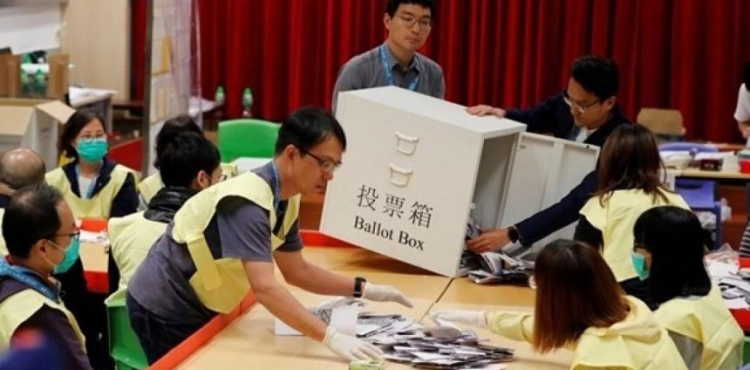More than 600,000 Hong Kong residents participated Saturday and Sunday in primaries organized by pro-democracy parties to choose their candidates for the legislative elections scheduled for September, organizers confirmed Sunday.
Significant turnout was recorded in the informal poll, despite a warning from authorities who considered it might be in violation of the new law imposed by Beijing in the former British colony.
According to the organizers, at the close of the funds at 9:00 p.m. local time, more than 610,000 people participated in 250 informal polling stations.
"Under the National Security Act, about 600,000 people came to vote, and here the Hong Kong people are brave," said O Nok-hin, one of the organizers and a former pro-democracy lawmaker.
The results of the primary elections are expected to be announced on Monday evening, with the counting of votes ending. The winners will run for the September elections to fill seats in the 70-member city legislature.
Eric Tsang, who is in charge of constitutional affairs and the mainland, warned Monday that those who "organize, plan and participate" in the primaries may violate the new law.
But O Nok-hin considered that "Hong Kong residents once again performed miracles and demonstrated to the whole world that the pro-democracy camp could attract this number of people to vote."
On June 30, China passed a strict national security law, which it imposed on Hong Kong to combat sabotage, separatism, terrorism and collusion with foreign powers, in response to a protest movement against the Chinese central authority last year in the semi-autonomous region.
On Friday evening, police raided the Public Opinion Research Institute, an independent polling institute involved in polling.
The security justified this by receiving information about a breach in the organization’s computers, which led to the leak of personal data.
The raid raised doubts about the organization of the poll, but institution president Robert Shang confirmed on Saturday that the voting system had been secured and that their operations were legal and transparent.
He added that "the primaries represent a peaceful, rational and non-violent approach to expressing public opinion."












